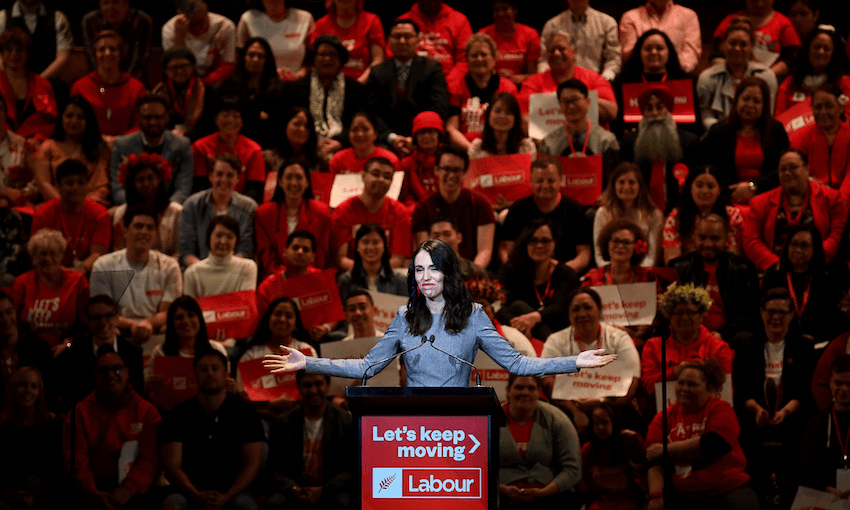Parliament is scheduled to be dissolved today for an election on September 19. University of Otago law professor Andrew Geddis runs through how and under what circumstances the election will happen – or be delayed.
This post has been updated following the prime minister’s announcement that the dissolution of parliament will be deferred.
No matter how, Covid-19 is now back in the community. How widespread, and with what consequences, we don’t yet know. Which hasn’t stopped some folk already starting to question whether September’s election can be held as planned. After all, physical election campaigning has been put on ice until it becomes clear how bad the situation is. And the start of advance voting is now only 24 days away.
What the hell is going to happen?
Fortunately, back in mid-March I turned my mind to just that question. As I noted then, until parliament is dissolved and a writ – official instructions – for the election is issued, the decision on when to hold it lies entirely with the prime minister through her advice to the governor general. This morning, she announced that parliament (which was due to be dissolved at 11 am today) will continue until at least Monday. I assume this means that the writ for the election (which was due to be issued on August 16) also now will be delayed.
So, that permits a bit of a breather before finally committing to the September 19 date. But it can’t last for too long. The Electoral Act requries that candidate nominations must be received by at least 20 days before the election day, and the Electoral Commission actually proposed August 21 as the nomination cut-off deadline. That is because overseas voting starts as early as September 2, so time needs to be left for preparing ballot papers. To say nothing of the Electoral Commission needing to know when it will need to have polling places ready with people to operate them.
So, in reality a decision is going to have to be made by pretty early next week whether September 19 is to remain our election day. And should that decision be to dissolve parliament and issue the election writ as planned, the election timetable then goes from being a matter of political discretion to one of statutory requirement. Once the governor general issues the election writ, the September 19 election date gets locked in. What, however, if that were to happen and the worst comes to be with the virus spreading widely, necessitating a lengthy stay at level 3 (or, God forbid, level four)? How can we vote under such conditions?
Well, amendments to the Electoral Act that came into force earlier this year address just such a possibility. These provisions permit the chief electoral officer – not the prime minister or other political figure – to stop voting at polling stations due to “an unforeseen or unavoidable disruption”, which includes the issuing of an epidemic notice.
Voting can be put on hold for an initial period of three days, with this suspension able to be successively extended for a week at a time following consultation with the prime minister and the leader of the opposition. And there’s no limit to just how long such a suspension can last; the normal election timetable is suspended while it is in place.
So, if it then transpires that Covid-19 makes it just too dangerous to have people going to the polling place on that day, the election can be put off until it is safe. And the Electoral Act now also allows the chief electoral officer to implement “alternative voting processes”, such allowing everyone to upload their ballot electronically, as can be done for overseas voters. Alternatively, mobile voting booths could be permitted to bring the vote to people who are self-isolating, rather than require them to visit school halls or supermarkets.
In short, the mechanics of voting can cope with an extended Covid-19 outbreak. Whether the politics of the election – and in particular, the perceived legitimacy of a vote held in the midst of elevated restrictions – can do so is another question. One that lies outside my lane – so I’ll leave it to social media to settle.

